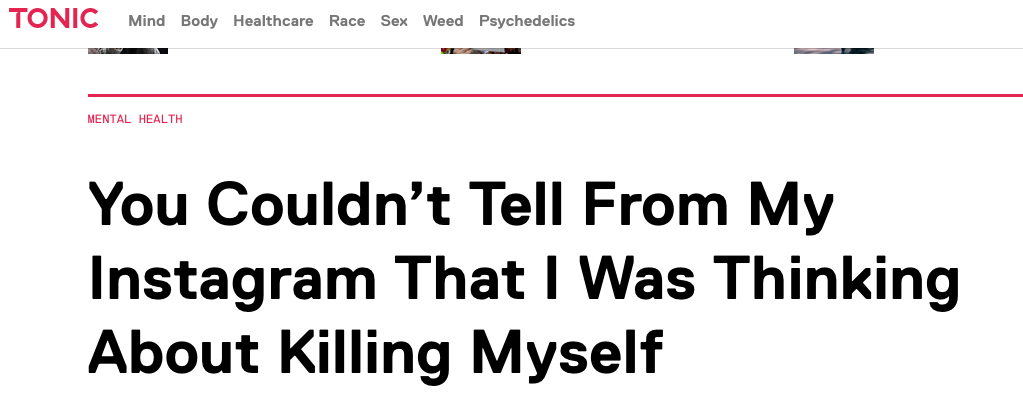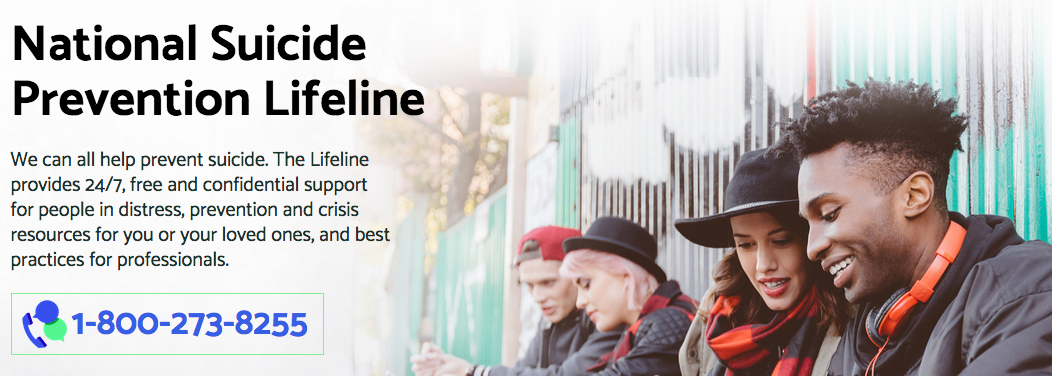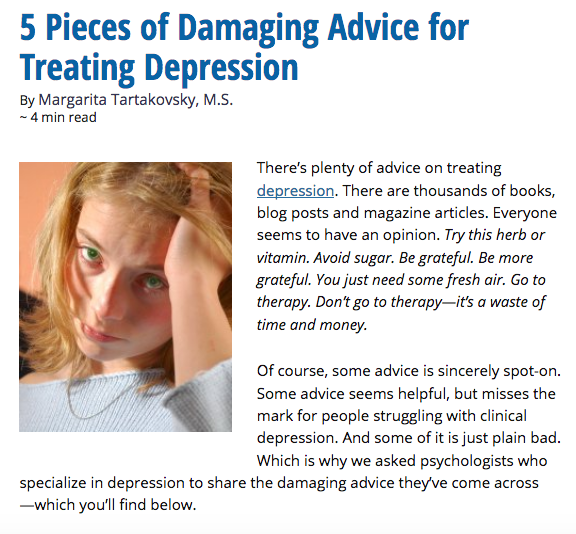Suicide has been in the news recently. The recent deaths by suicide of celebrities Kate Spade and Anthony Bourdain has people grappling with questions why suicide happens – particularly when it involves people with seemingly happy lives.
I recently got to be part of an article about this very topic over at VICE. Author Ali Wunderman did an amazing job sharing her own mental health struggles. I am so impressed by her honesty and vulnerability in this article. Check it out:
Here’s a quick tip for talking to a friend who you suspect is depressed:
When it comes time to act on your offer, be honest with yourself and your friends about the level of support you can provide. “It can be intimidating to reach out to anyone we suspect is struggling whether it be with mental illness, physical pain or anything else,†Smith says. But even if it’s scary, it’s worth it to try. “The fact of the matter is, it’s not about saying the perfect thing, or fixing all your friend’s problems. It’s just about showing up and being a supportive presence in their life.â€
Check out the entire article for more ideas about how to talk to a friend or family member who you suspect might be experiencing thoughts of suicide.




